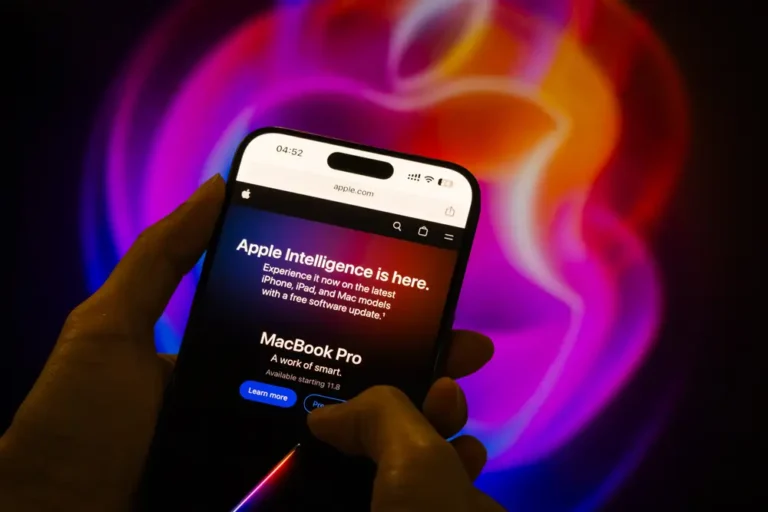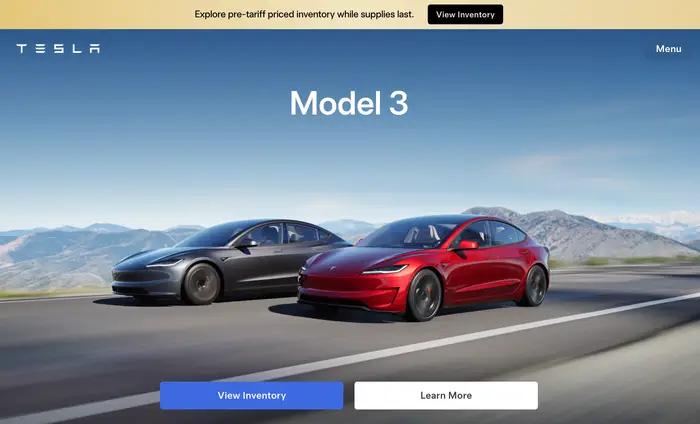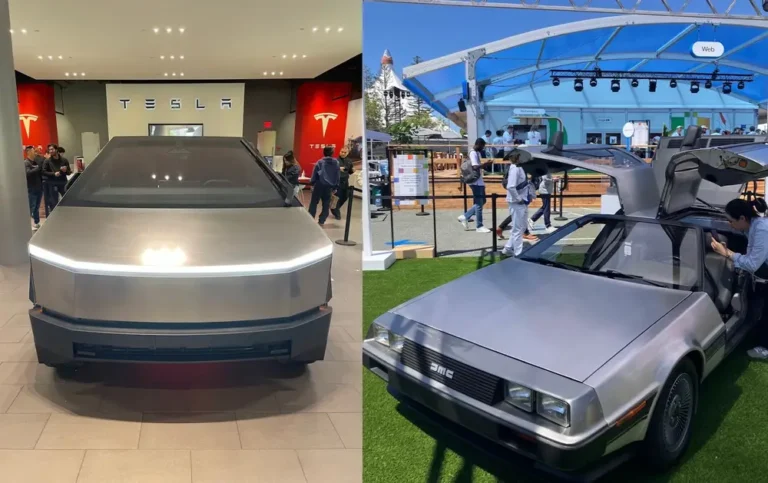Apple privately asked Amazon to block rival ads. Insider found evidence of this special treatment, while others suffer from ‘junk ads’

- Unlike most other brands, Apple search results and product pages on Amazon have few, if any, rival ads.
- Apple previously asked Amazon for this special treatment, an internal email shows.
- Having no ads can lead to faster page loads, and potentially higher sales of Apple products.
The Federal Trade Commission recently accused Amazon and former CEO Jeff Bezos of flooding the e-commerce site with irrelevant “junk ads” in order to increase profits.
Apple product pages appear to be exempt from this change on Amazon’s vast marketplace.
According to an Insider review of the e-commerce site, Apple’s latest products directly sold by Amazon have a much cleaner page layout on Amazon, with no ads or recommendations until the very bottom of the page. According to people familiar with the situation, who spoke on the condition of anonymity because they were not authorized to speak to the press, most other brands do not receive this special treatment.
Other companies’ product pages are cluttered with a mix of ads and product recommendations from competitors, as well as brands that are sometimes irrelevant. On Amazon, for example, the Samsung Galaxy and Microsoft Surface product pages have multiple banner ads, as well as a list of sponsored recommendations under tabs like “Products related to this item” or “4 stars and above.”
There is no extra marketing on the most recent Apple product pages on Amazon. According to one of the sources, the disparity has enraged some of Apple’s biggest rivals, including Samsung.
Clean iPhone searches
Amazon search results for “iPhone” and “iPad” provide a similarly clean experience. According to Insider’s recent review, the top banner is always an Apple ad, and only one banner ad appears at the very bottom of the page.
Amazon search results for other brands, such as Samsung and Sony, display at least two or three sponsored ads from competitors. Amazon also provides fewer search results for Apple’s products than its competitors.
“It’s clear that Apple made a deal with Amazon that is not available to other brands,” Juozas Kaziukenas, CEO of e-commerce research firm Marketplace Pulse, told Insider. “I can’t recall any other brand with the same setup.”
Private demands
According to an internal email previously shared by the House Judiciary Committee, the unusual arrangement follows the iPhone maker’s private demands to Amazon to only show its products in results when an Apple term like “iPad” is searched. Apple also asked Amazon at the time to keep its product pages clean, with no non-Apple product recommendations.
The email, titled “WW framework terms,” contains a list of discussion points prior to Apple and Amazon’s larger partnership agreement in 2018. This agreement allowed Amazon to directly sell a broader range of Apple products, including the iPhone and iPad, for the first time, and included anti-counterfeit measures such as only allowing authorized merchants to sell Apple products on Amazon’s marketplace.
“We understand that Apple does not want to drive sales to competing brands in search or detail pages,” said Jeff Wilke, Amazon’s retail CEO at the time, in an email.
Apple’s request is especially noteworthy in light of Amazon’s increasing use of advertisements on its marketplace, as alleged in the FTC lawsuit. With over $38 billion in revenue last year, Amazon’s advertising unit is a key growth and profit driver. However, cramming its website with advertisements risks alienating brands and imposing additional costs on merchants. It also has the potential to confuse customers, which Apple was most likely attempting to avoid.
Apple acknowledged in an email to Insider that a 2018 agreement with Amazon prohibits other brands from purchasing ads on the e-commerce site for a few specific Apple-related brand queries. Third-party brands can still buy ads on Amazon for generic keywords containing the Apple logo, according to the company. According to Marketplace Pulse’s Kaziukenas, this means that brands can buy ads on Amazon’s marketplace for broad terms like “iPhone 15 pro case,” but not for specific queries like “iPhone.”
Apple’s goal was to provide the best customer experience possible, and other companies are free to do the same, according to an Apple representative.
Amazon and Samsung representatives did not respond to requests for comment.
‘Counterfeit and safety issues’
According to Apple, the 2018 agreement with Amazon was intended to address significant counterfeit and safety issues on Amazon’s marketplace. Apple sent hundreds of thousands of take-down notices to Amazon prior to the deal to reduce counterfeits, and the company conducted test purchases on Amazon that consistently returned high counterfeit rates, according to Apple.
According to the iPhone maker, these moves helped Apple significantly reduce the number of counterfeit and unsafe Apple products on Amazon.
‘Compensate Amazon for the lost ad revenue’
Back in 2018, Amazon appears to have initially refused Apple’s request, but left open the possibility of working out a financial arrangement, according to the email shared by the House Judiciary Committee.
“We cannot alter our organic search algorithm to return only Apple products in the search results when an Apple team is searched,” Amazon’s then-retail CEO Jeff Wilke wrote in the email. (“Organic search” refers to pure search results that don’t include ads).
Wilke also wrote that Amazon does not block or limit advertising on product “detail” pages. But Apple could potentially pay up for this to happen, he added.
“Apple would need to purchase these placements or compensate Amazon for the lost ad revenue,” Wilke wrote in the email.
Some parts of the email were redacted, and the exact details of that deal could not be learned. But the advertising component was one of the many parts of the broader agreement, according to a person familiar with the matter.
This person said Apple is getting a “massive preferential treatment” on Amazon. Apple is extremely sensitive about the brand experience on Amazon and does not want “pesky” competition clogging its product detail page, this person added.
Digital end cap
Retailers have for years offered special promotional spots in physical stores, like end caps, where certain products get exclusive placements. Amazon’s treatment of Apple’s latest products may be seen as a digital version of that.
But it’s unclear if Amazon makes this special Apple arrangement available to other brands selling on its site. An Insider review of some of the latest products from Samsung, Microsoft, Bose, Sony, and LG show plenty of sponsored ads and recommendation widgets on their Amazon product and search-result pages.
A source of frustration
The special treatment is a source of frustration for some of Apple’s competitors. Samsung, for example, complained about this, one of the people said, because it’s not something you can simply negotiate with Amazon’s advertising team.
“I’m surprised — that’s strange,” a former senior Amazon advertising manager told Insider, referring to Apple’s clean product and search result pages. “I wouldn’t have the discretion to offer something like that.”
At least half a dozen salespeople on Amazon’s advertising team told Insider that they were not able to extend this Apple-style special treatment to their clients. Large advertisers on Amazon constantly ask for this type of exclusivity, but the company usually denies those requests because it wants a diverse set of search results and ads, one of the people said. To create Apple’s clean product and search pages, multiple teams at the most senior levels at Amazon would have had to get involved, this person added.
“We balk at companies that want to buy all the ad slots,” this person said. “I have never seen, nor do I have the control to give, that type of right.”
‘Junk ads’
The treatment accorded to Apple differs greatly from Amazon’s broader mandate to accept more ads on its marketplace, even if it harms the customer experience, a practice detailed in the FTC’s filing last week.
According to the FTC, Amazon has increased not only the number of ads on its e-commerce site in recent years, but also the number of “irrelevant junk ads,” which are internally referred to as “defects.” According to the filing, it accused Bezos of encouraging the company to do more of this in order to increase profitability.
“Mr. Bezos instructed his executives to ‘[a]ccept more defects’ because Amazon can extract billions of dollars through increased advertising despite worsening its services for customers,” the Federal Trade Commission (FTC) filing stated.
Amazon has made an attempt to address this issue. According to one of the people, the company tested a new search offering in recent years that worked similarly to Apple’s arrangement to remove irrelevant ads. According to this person, if a shopper searched for “Adidas,” Amazon would return only Adidas products because customers complained about unrelated product ads or recommendations. According to an Insider review of Amazon’s marketplace search results, the test appears to be over.
Potential sales boost
Apple’s improved search and product pages may have resulted in an additional benefit: increased sales.
According to one of the people, internal Amazon data shows that faster page loads typically lead to higher sales, even if the difference is only a millisecond. Because Apple’s pages aren’t clogged with ads and product recommendations, its products and search results appear faster on Amazon, resulting in a better customer experience and potentially higher sales.
“Amazon is not neutral,” this individual stated. “It’s more biased towards Apple.”






